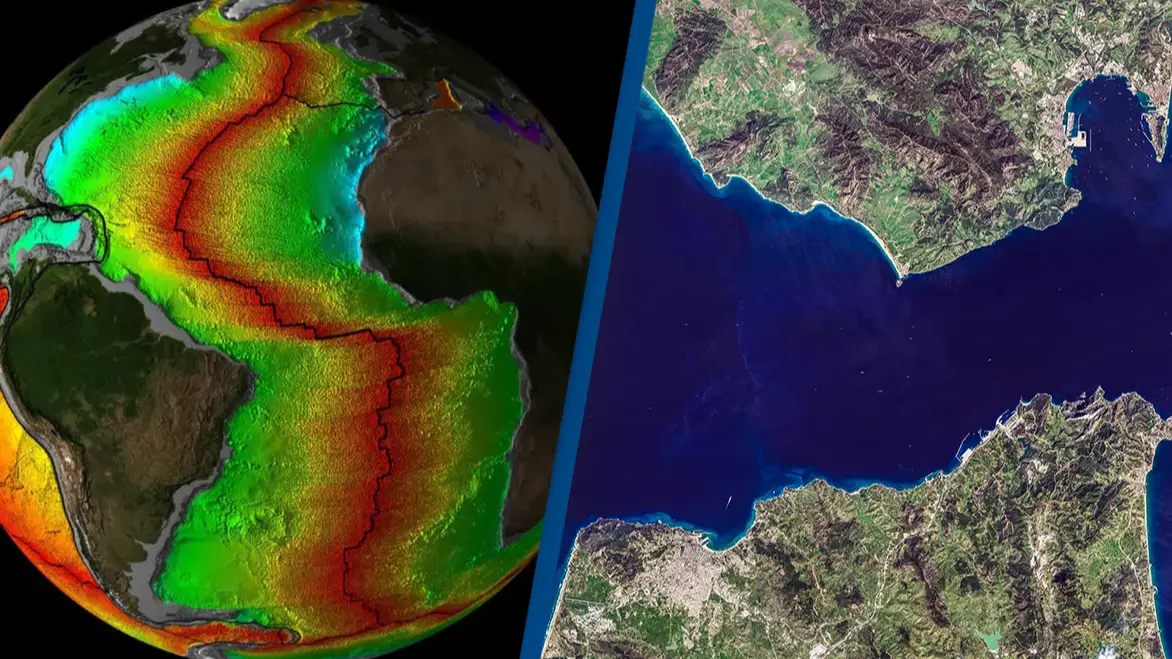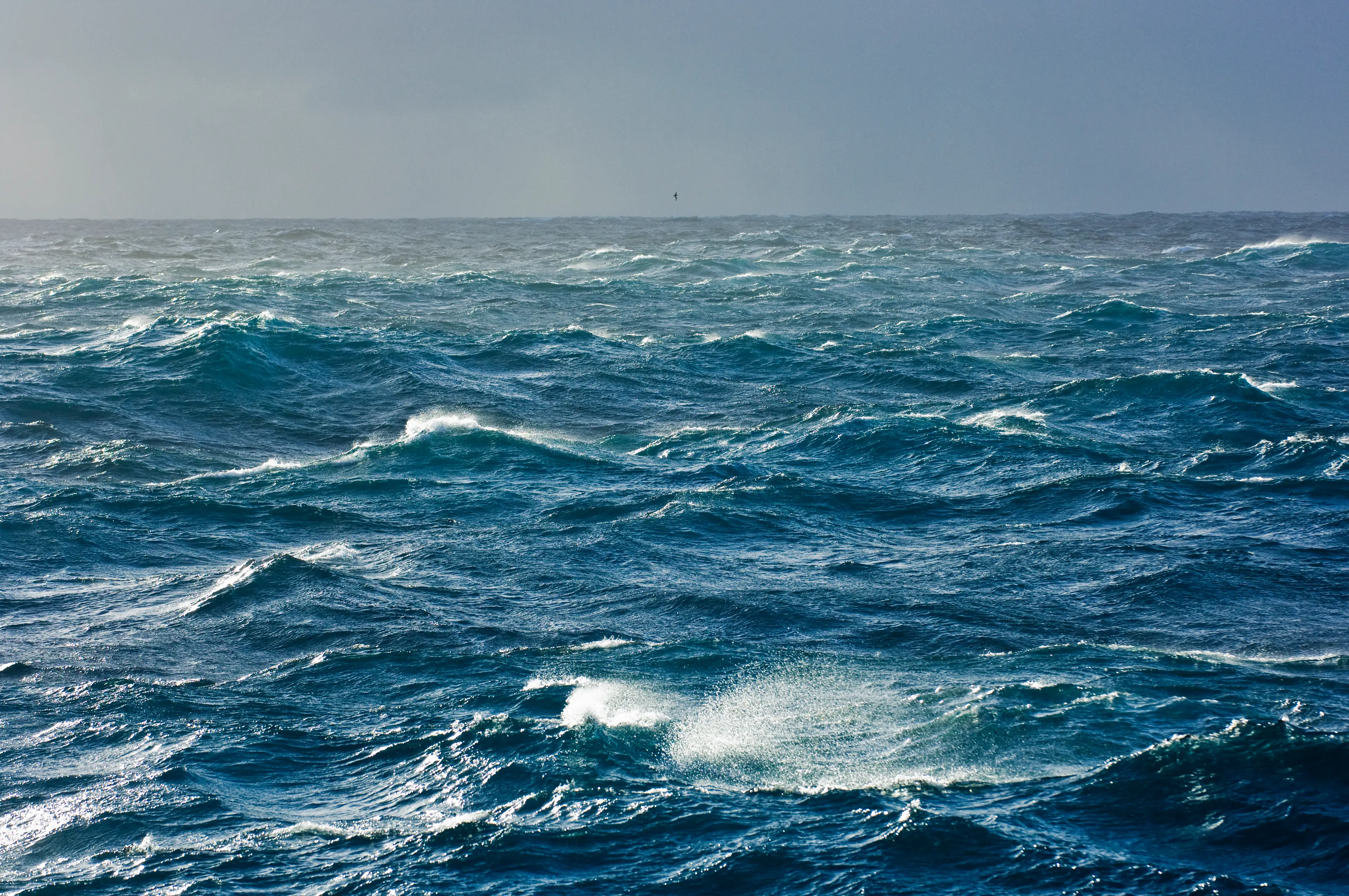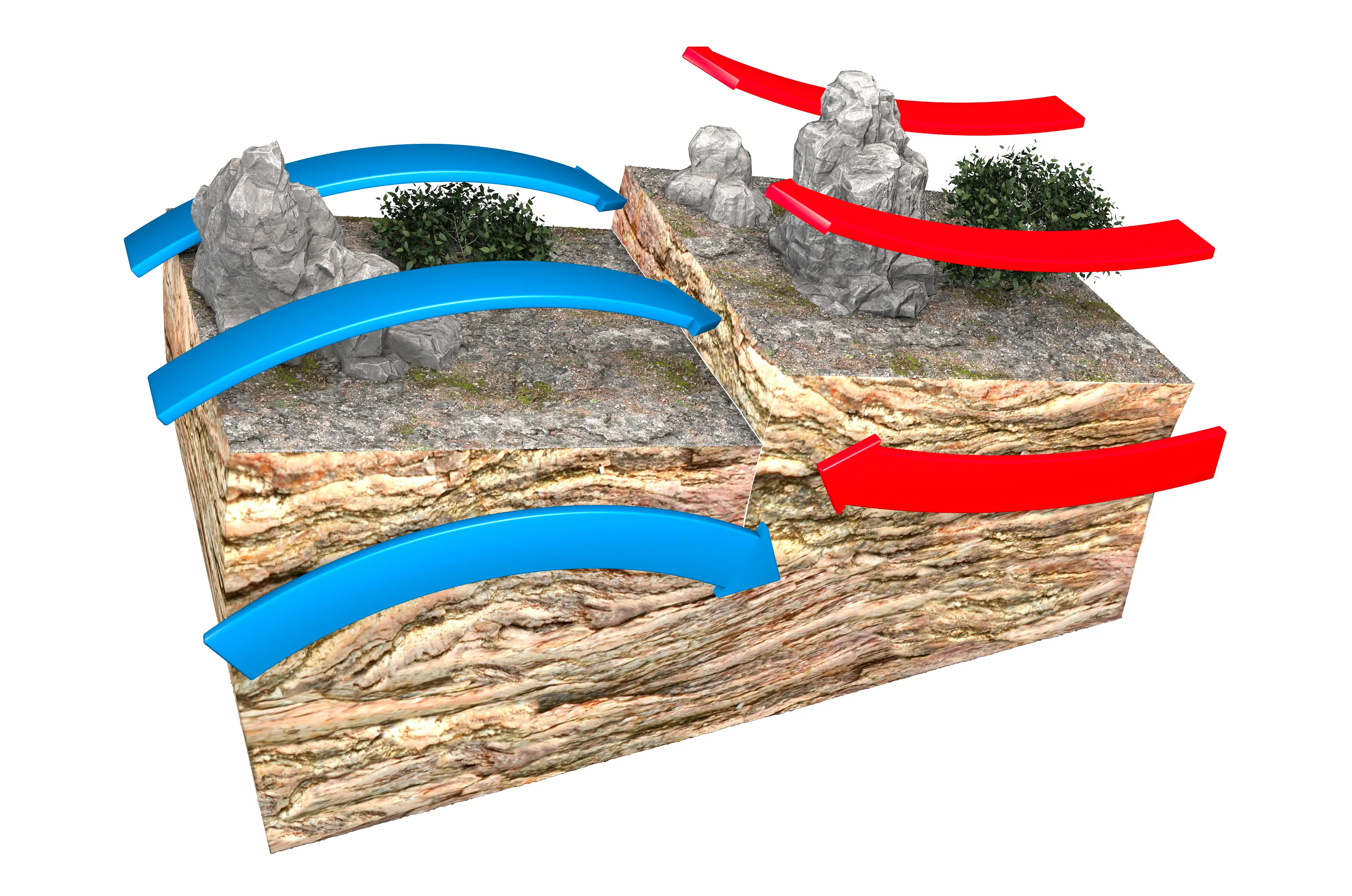
We all know the Atlantic Ocean, right? The big thing that separates the US and Europe? Well, it turns out it could get swallowed up entirely.
It might sound like something out of a sci-fi movie, but it's actually a real finding from a study led by João Duarte, a professor in tectonics at the Faculty of Sciences of the University of Lisbon, Portugal.

In the study, the scientists looked at a subduction zone, which is located beneath the Gibraltar Strait between Spain and Morocco.
Advert
Subduction zones are locations on Earth where one plate is pushed below another plate. Beneath the Gibraltar Strait, the African plate is subducting below the Eurasian plate - only it's happening 'very very slow' at the moment.
However, Duarte and his colleagues have warned that if 'new subduction zones' form, they could swallow up entire oceans.
And according to them, the process might already be underway with the Atlantic.
Speaking to the Mail Online, Professor Duarte said: "We have good reason to think that the Atlantic is starting to close.
"Subduction zones are what cause the oceans to close, by pulling their ocean floor back into the mantle, bringing the continents together."

While the subduction zone below the Gibraltar Strait is currently about 125 miles long, it could eventually reach a length of about 500 miles.
Admittedly it might take approximately 20 million years for it to do so, but the team were able to use computer modelling to simulate the life of the subduction zone and anticipate how it might progress in the future.
Using the model, the scientists predicted the zone will move westwards and form a new Atlantic subduction system known as the 'Ring of Fire'.
As the subduction continues, it will shrink the basin of the ocean and effectively 'close up' the Atlantic.

In the study, published in the journal Geology, the researchers said: "The results suggest that the arc will propagate farther into the Atlantic after a period of quiescence (inactivity).
"The models also show how a subduction zone starting in a closing ocean can migrate into a new opening ocean through a narrow oceanic corridor.
"Subduction invasion is likely a common mechanism of subduction initiation in Atlantic-type oceans and a fundamental process in the recent geological evolution of Earth."
So, while we've got a good few million years left to enjoy the Atlantic Ocean, the landscape could look very different for future generations. Better snap those sunset-ocean pics while we can!
Topics: Science, Environment, Climate Change, Nature